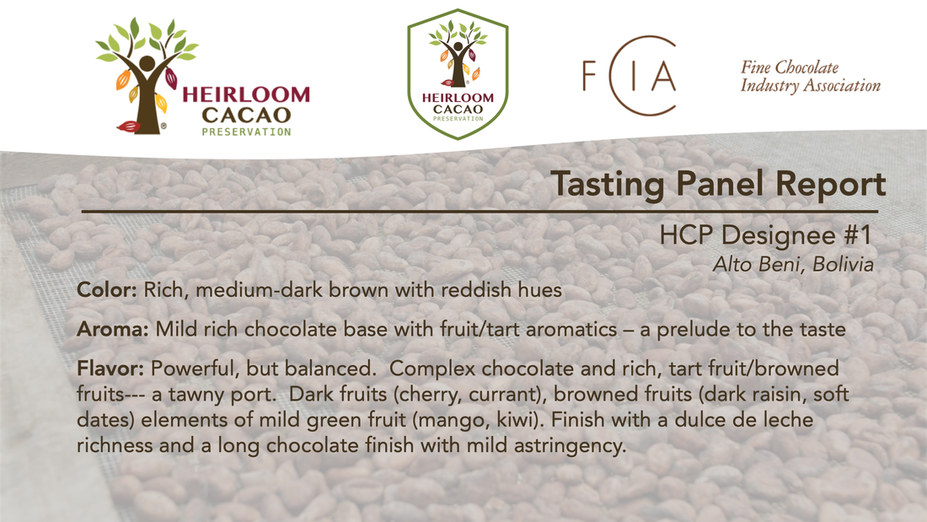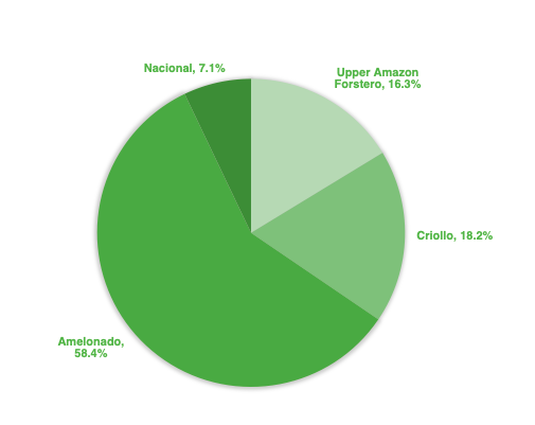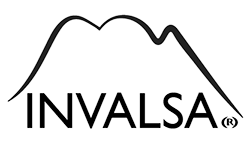New crop (2024/25) arrived on June 2025! Packed at origin in 50-kilo GrainPro® bags. We have plenty of our Heirloom beans.
These beans so much liked by John Nanci at Chocolate Alchemy. Go ahead and make some awesome chocolate!
Unfortunately, unless you buy 4+ FULL (110 lbs.) bags we are forced to pass a warehouse fee of $49 per bag. It is cheaper to ship 4+ (without a warehouse fee) bags via truck (LTL), anywhere. This does not apply to smaller orders.
These certified-organic cacao beans were grown and processed in our centralized fermentation plant in the community of Buena Vista, near Sapecho, Palos Blancos, Alto Beni , Bolivia. They are certified organic by Control Union NL at origin and Baystate Organic Certifiers in the US.
ABC's cacao business started in 2009, when Alex Whitmore, founder and CEO of Taza Chocolate in Somerville, MA, contacted us to help his company source organic Bolivian cacao. At that point, we knew a lot about Bolivia and Bolivian coffee, but nothing about cacao. Alex has been an excellent teacher and in 2010, we sourced Taza Chocolate's first shipment of direct-trade, organic cacao from Palos Blancos, in Alto Beni region of Bolivia. Because of Taza's changing product mix, and our high costs, we no longer supply Taza Chocolate. We now sell our cocoa beans directly to Chocolatiers worldwide in North America Europe and Japan.
2014 was our first full year of operations at the Alto Beni Cacao Co., our project aiming to revolutionize the Bolivian cacao industry by building the first-in-country centralized cacao fermentation plant, and nursery program for high-quality Bolivian cacao seedlings. VALFARM's cacao business started in 2009, when Alex Whitmore, founder and CEO of Taza Chocolate in Somerville, MA, contacted us to help his company source organic Bolivian cacao. At that point, we knew a lot about Bolivia and Bolivian coffee, but nothing about cacao. Alex has been an excellent teacher and in 2010, we sourced Taza Chocolate's first shipment of direct-trade, organic cacao from the Palos Blancos, Alto Beni region of Bolivia. Because of Taza's changing product mix, we no longer work with Taza Chocolate. We now sell our cocoa beans directly to Chocolatiers worldwide in North AMerica Europe and Japan. 2023 is our nineth year of cacao improvement and processing in our centralized plant in the Buena Vista community.
Alto Beni Cacao works, and pays for the organic certification of about 100 cacao-producing families in the Alto Beni region (Tucupi, Alto Remolino, Popoy, Sapecho, Covendo, San Jose etc.). We also have a 10 Ha. parcel in Buena Vista (on the paved road from Sapecho to Yucumo) where our modern, centralized fermentation plant is located
Our current production capacity is 60 MT annually, which can be easily doubled.
These cacao beans are a hybrid variety (largest genetic pool, Amelonado). We are continually making improvements in the quality control system at our plant; these beans are of a much more consistent quality than previously available sources of Bolivian cacao (from us or anyone else). We call these beans "Walikeewa", the local Aymara language for "improved". They are much larger than our Heirloom cacao beans, easier for larger winnowing machines.
These improved cacao beans are purchased unprocessed (in baba) by the ABC team near our plant in the Alto Beni region. Once dried, screened and homogenized, these cacao beans are packed in GrainPro® bags at 7.5% humidity, and kept cool and dry in our Llojeta warehouse (over 10,000 feet above sea level) in the city of La Paz, "reposando" (resting) to improve flavor and awaiting export. We are proud to say we are the main supplier of cacao beans to Chocolates Para Ti, the widely acknowledged largest and best chocolate maker in Bolivia based in the beautiful, colonial city of Sucre.
Our Walikeewa cacao beans are the same as the #1 HCP Heirloom Cacao 1 Alto Beni (Heirloom Cacao Project), which have the 58.4% Amelonado, 18.2% Criollo, 16.3%, Upper Amazon Forastero, and 7.1% Nacional Genetic Profile. They were registered at the HCP by our good friend and cacao-export customer Volker Lehmann. Below is the Genetic profile published in the www.hcpcacao.org website.

HCP Tasting Panelists also commented on this bean’s fresh fruit and floral notes, complimented by its tamed, but prolonged cacao flavor.
USDA Genetic Profile for HCP #1 Cacao
How do I roast cacao beans?
To roast cacao beans, you need to expose them to a high temperature, close to 325 degrees, and then gradually lower that temperature for the next 15 to 30 minutes. You lower temperature to prevent burning of the outside of the beans while the inside gets appropriately hot, and kills all the bacteria and mold that may be left over from fermenting the fresh cacao beans. When the beans start to pop (from water evaporation), making a sound known as the "crack" in coffee roasting parlance, they are very close to being finished. You want to stop just after most are finished cracking, but not so long after that they start to smell burnt. It is a trial-and-error method and you will get better as you roast more cacao beans. Many coffee aficionados roast their own coffee at home to ensure the highest degree of flavor and quality, and save lots of money in the process. If you are one of them, you can do exactly the same thing for cacao beans. Even if you don't roast coffee at home, but just love the flavor of high-quality cocoa or chocolate, you can follow these quick, easy steps to roast your own cacao beans in your own kitchen.
The processes of roasting coffee and cacao beans are nearly the same, except because cacao beans are more fragile than coffee beans, they have to be roasted at a much lower temperature. Coffee beans are generally roasted at around 450-480 degrees Fahrenheit, while cacao beans should never get hotter than 325 degrees. Your nose will tell you. If it stars smelling burnt, it is too hot! Other than the lower temperature, the process is the same. We recommend using the Behmor 1600 coffee roaster for cacao roasting. The Behmor 1600 is designed as a coffee roaster, but works well with cacao. Use the one-pound setting with the P2 profile, but fill the grid drum with 2.5 to 3 lbs of raw cacao beans. We are an authorized distributor of the Behmor 2000 AB Plus, and you can find it on this site in the "Roasters & Grinders" collection.

